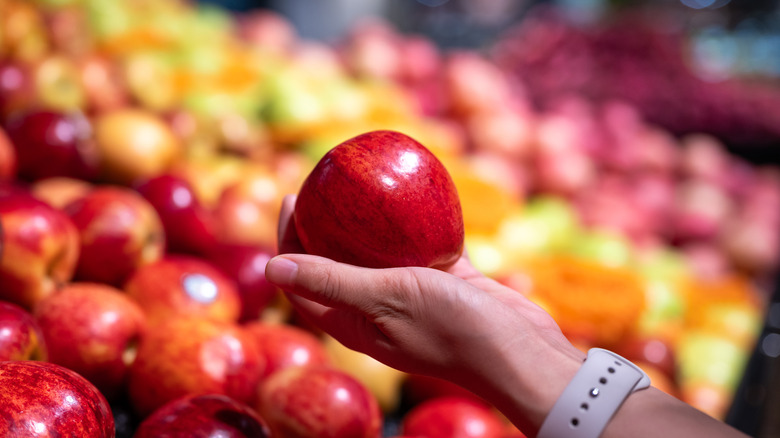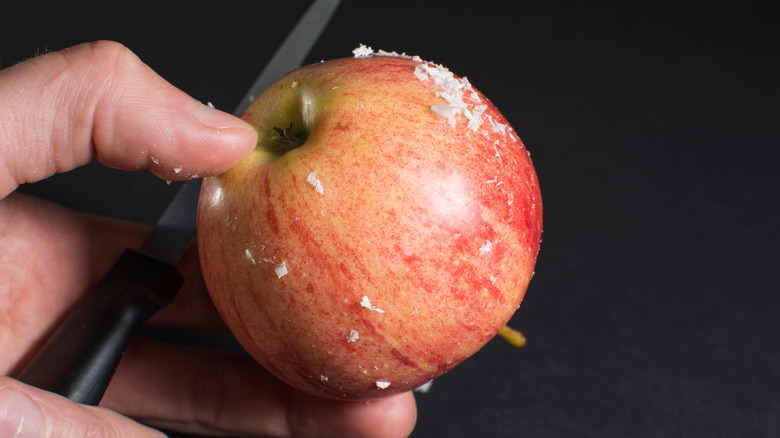The Reason Grocery Store Apples Have That Waxy Coating
Shiny red apples are the quintessential supermarket item whenever you enter the fruit section. To many, apples are like the poster child for fruits. In addition to being nutritious and versatile enough to grow across the world and use in several desserts, they also simply look good. In fact, sometimes, they may look too good to believe.
You may have heard that supermarket apples open sport a waxy coating and wondered just how safe they are to eat. The good news is that you have nothing to worry about. Yes, apples sold in U.S. groceries and beyond do often have a waxy coating, but it's there to ensure they don't dry out in the time they get while in transit from the orchard to your home. This doesn't apply to all produce. For instance, some fruits can be bought frozen and are almost as good as their fresh counterparts (not to mention much more convenient). Unfortunately, apples are not one of them. That crisp, juicy texture of a perfect apple is only possible if you bite into a fresh one.
Interestingly, even if you pluck an apple off a tree, you'll likely find that it's covered in wax. That's because the fruit typically has a protective layer of natural wax. This is removed when the apples are washed after harvesting, then a new layer of wax is applied. Several other items in the produce section, from cucumbers and tomatoes to designer fruits like those sugary sweet cotton candy grapes, are also covered in a food safe wax to extend their shelf life.
Apples have natural and artificial waxy coatings
The natural wax coating of apples helps keep them from drying and protects against mold. Once they're harvested, apples are washed to remove dirt and pesticides, a process that also removes their natural wax coating. Thus, they are then covered with a thin layer of artificial wax before packaging. The process of coating farm produce with wax to keep it from drying out has actually been around for at least a century.
Washing the apples removes some of the wax but not all of it. An apple you bring home from the supermarket will generally have some of its natural wax as well as some artificial wax on its skin. While you can use a brush to try and scrub if off, it may not really be worth the effort. The natural wax of the apple skin doesn't get absorbed by the body and passes harmlessly through our system, making it safe to eat. Artificial wax applied to apples is made from food-grade materials and is FDA-approved for consumption. The amount of wax is also minute, with only about a drop or two of the stuff used to cover an apple. Of course, you must still wash fruit to help get rid of any germs and bacteria, and there is a simple way to wash apples to get rid of any lingering pesticides or hazardous chemicals. However, wax on your grocery store apples is just not something you need to worry about.

